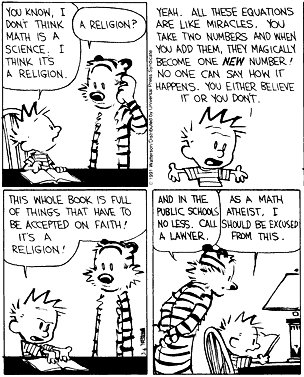
According to the Quebec courts it is the government who has the final say, at least in terms of what our children learn in school.
I heard about this story on cbc news as I was driving to work this morning:
Parents group to appeal ruling on ethics course: judge rejects bid for exemption. Studying religious culture doesn’t violate children’s right to freedom of religion, he rules
Though it has been in some schools as a pilot program for a few years, Ethics & Religious Culture has been a mandatory course for all schools, grades 1-11, in Quebec for the past 2 years. All schools. The idea first came out when I was working with the Bronfman Jewish Education Centre in Montreal. In response, our schools were concerned that we were being forced to add a course on diverse religions to an already packed school day – what with 3 and sometimes 4 languages (English, French, Hebrew, and Yiddish) and their own Judaic programming. Catholic and Muslim schools had similar concerns, so quite a few of the religious schools opted into the pilot phase of the program to see what they were dealing with.
Now that the course is in the schools, parents are starting to express their own concerns. Some are bringing the ministry of education to court because they want to opt their children out of the course. Today we found out the Superior court has denied this petition. This course replaces older religion and morals courses, it teaches about diverse religions with an emphasis on the Catholic tradition since that is the historical religious tradition in Quebec. The goal is to open minds to different world views around ethical issues. Specifically, the 3 competencies for the course are:
Competency 1 – Reflects on ethical questions
Competency 2 – Demonstrates an understanding of the phenomenon of religion
Competency 3 – Engages in dialogue
What I like about it is the focus on dialogue that ethics brings into the course. That being said, I am not religious. I am not sure how I would feel if I were very religious and were trying to raise my children to be the same.
I’m teaching the course for the first time this year and will be looking at the issue raised with this ruling as part of it. Issues like the role of the state, parent rights, children/student rights, the whole messy issue of multiculturalism and reasonable accommodation. Of course, I teach in a province that already has a precedent of mandating the learning of French in our schools, along with whether or not one has the right to an English education depending on the educational background (linguistic) of your family in the province of Quebec. Complicated, eh? Lucky for us, our own government is offering ample fodder for dialogue within its own practice. Doubly lucky since there are no English language materials – besides ones which were created by teachers involved in the pilot programs and who have taught it since then – being provided to us in order to teach the provincially mandated course. Oops, a little bit of ‘I digress’ going on, sorry.
What do you think? Should the government or parents have the final say on religious education for children?

Leave a Reply